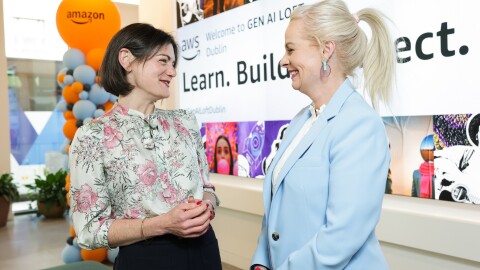Netcomm, the e-commerce consortium in Italy, together with Althesys, conducted research which analyses how the digital retail supply chain can generate wealth and well-being for the Italian socio-economic system, identifying its main drivers and obstacles. The findings are as follows:
- The e-commerce supply chain generated a value of over €133.6 billion in Italy in 2022, equal to 7% of GDP; a figure that grew by 13.9% compared to the previous year.
- Considering the induced, direct, and indirect effects, the e-commerce supply chain contributes to creating 1.6 million jobs (+12.4% compared to 2021), representing 6.4% of employed people in Italy, for a total of €35 billion in gross salaries (+13.2% compared to 2021).
- The e-commerce supply chain also generated €49.6 billion in tax revenue in 2022 (9.1% of tax revenue), which allowed the State to invest in public services and infrastructure, improving the well-being of the community and supporting the Italy’s economic development.
"The idea of e-commerce as an 'enemy to be countered' is an unfounded and outdated prejudice. The numbers speak clearly, politics cannot ignore this evidence, said Roberto Liscia, President of Netcomm. “To date, 4.7% of the total revenue of Italian companies is recorded through the e-commerce channel. Although this is a growing percentage - having almost doubled from 2.2% in 2014 - the growth potential of this sector is still very broad. The degree of digitalisation of our companies is still insufficient, and policies are needed to support them in seizing opportunities to open up to international markets through digital means, increasing exports. We also hope that the Government will adopt increasingly close collaboration strategies with private entities in favor of the country's system, where new technologies and innovations such as artificial intelligence represent a fundamental development asset for our companies."
Amazon's support for the supply chain
Our investments in technology, innovation, and people foster the growth and development of supply chains throughout Italy. We have invested over €16.9 billion in Italy since 2010. These investments not only promote the development of local supply chains but also generate stable and well-paid jobs. We have created 18,000 permanent positions in Italy and paid an average of almost €50 million per month in salaries to Italian employees. Our overall tax contribution - combining direct and indirect taxes - was over €1.1 billion in 2022 (+53% compared to €751 million in 2021). But our impact is not limited to our direct operations. The indirect effects of our investments extend to the entire economy, with over 100,000 jobs created in Italy, 40,000 of which are in the logistics and construction sectors, and 60,000 are thanks to Italian small and medium enterprises (SMEs) that use Amazon to expand their businesses.
Supporting SMEs
SMEs represent the backbone of the Italian economy, and we’re actively committed to supporting them in their growth and journey of internationalisation. Globally, 61% of products sold on Amazon come from third-party selling partners. A few weeks ago, we committed to supporting Italian companies that sell on Amazon by helping them reach €4 billion in foreign sales by 2025 (currently €3 billion). This goal is made possible thanks to various initiatives carried out with institutions, academia, and industries. These include the free digital training programme Accelera con Amazon; the Made in Italy showcase – which is now present in 11 countries and hosts over 2 million products internationally; and Made in Italy Days, allowing Amazon customers in eight countries to purchase Italian products. Finally, the Memorandum of Understanding on Made in Italy, signed in April 2024 with the Ministry of Foreign Affairs and International Cooperation, the Ministry of Enterprises and Made in Italy, and the Ministry of Agriculture, Food Sovereignty and Forestry, aims to promote and protect the authenticity of Made in Italy products, fighting against counterfeit which harms Italian companies and consumers. These initiatives aim to support the digitisation, internationalisation, promotion, and excellence of Italian SMEs in global markets.
Growth and internationalisation
To fully realise the potential of SMEs, Amazon identifies two key areas: strengthening digital skills and consolidating the European Single Market. The first area is a fundamental pillar for the evolution of Italian companies in the digital space. Investing in training and professional development will enable all companies, regardless of their size or sector, to fully exploit the opportunities offered by digital transformation. Enhancing skills will foster the adoption of new technologies, including artificial intelligence, while also increasing the competitiveness and resilience of Italian companies in the global market. The second area, the development of a more integrated and harmonised European Single Market, is crucial to enabling Italian SMEs to successfully expand their activities beyond national borders. By eliminating regulatory barriers and simplifying bureaucracy, companies will be able to access new markets and growth opportunities more easily. Furthermore, a stronger European Single Market will foster the development of cross-border partnerships and the sharing of best practices, fueling innovation and competitiveness across the whole Italian economy.














